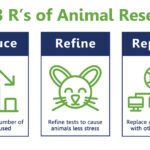In contemporary discussions surrounding the ethical treatment of animals, two predominant philosophies arise: animal welfare and animal rights. Each perspective is deeply rooted in ethical considerations, yet they diverge significantly in their principles and implications. This article delves into the nuances of both ideologies, inviting readers to explore their own stance on this critical issue.
Animal welfare advocates prioritize the well-being of animals within human contexts, emphasizing humane treatment and conditions. This perspective asserts that, while animals can be utilized for human purposes—ranging from companionship to agricultural uses—there exists a profound responsibility to ensure that their lives are characterized by decent living conditions, adequate care, and freedom from suffering. Proponents of animal welfare argue for the necessity of legislation that mandates humane practices in industries such as agriculture, research, and entertainment. In this view, a cow raised for dairy production should be afforded sufficient space to roam and socialize, and a dog in a shelter must receive appropriate medical attention and socialization to thrive.
On the other hand, the animal rights philosophy posits a more radical standpoint. Advocates argue that animals possess inherent rights similar to those granted to humans, thus challenging the very premise of using animals for human benefit. The animal rights perspective contends that animals should not be subject to ownership, utilization, or exploitation for food, research, clothing, or entertainment. This ideology is grounded in the notion that sentient beings deserve to live free from suffering and injustice, regardless of their utility to humans. Thus, an animal’s right to exist unimpeded by human activities takes center stage in this ethical framework.
At the heart of the animal welfare versus animal rights debate lies the question of moral consideration. Animal welfare supporters argue for humane treatment rather than absolute liberation, suggesting that improvement of circumstances is paramount. They contend that reformist approaches, such as enhancing the standards of animal husbandry or prohibiting inhumane practices like battery cages, are viable and essential pathways toward more ethical treatment of animals. This view assumes that humans can and should be responsible stewards of animal lives, operating within a framework of humane ethics.
Conversely, animal rights supporters argue that any form of exploitation is fundamentally unethical. They advocate for a complete eradication of practices that use animals, viewing any form of animal captivity or use as inherently cruel. The rhetoric of this stance is often impassioned, emphasizing liberation and autonomy. For instance, rather than advocating for better cages, advocates for rights demand that all forms of captivity and confinement be abolished, ushering in a new paradigm in which humans relinquish the notion that they hold dominion over other species.
A pivotal factor in this discourse is the concept of sentience. Across both frameworks, a recognition of animal sentience— the capacity of animals to feel and experience emotions such as joy, fear, and pain—underpins ethical arguments. Proponents of animal welfare focus intensely on the quality of life and welfare standards that recognize and accommodate sentience. They point to scientific advancements in understanding animal emotions, arguing that this awareness compels humanity to treat animals with dignity and care. This perspective also highlights how empirical evidence showcases better outcomes for animals when humane practices are implemented.
Alternatively, animal rights advocates leverage the acknowledgment of sentience as a springboard for arguing against exploitation in any form. They evoke the notion that sentience grants animals moral consideration that prohibits their commodification. This leads to a philosophical conclusion: if animals can feel pain and experience suffering, then their liberation from human control is a moral imperative. Thus, the knowledge of sentience serves as a catalyst for profound ethical transformation.
It is crucial to note the overlap and tension between these two ideologies. Many individuals may identify with aspects of both philosophies, advocating for humane treatment while grappling with the ethical implications of using animals altogether. This intersection can lead to meaningful discussions about the gradual evolution of societal norms and values concerning animal treatment. For instance, an individual may support policies that enhance animal welfare while feeling conflicted about the larger ethical implications of animal consumption or experimentation.
Moreover, the rise of plant-based diets and ethical consumerism reflects a shifting landscape where the traditional boundaries between welfare and rights blur. With increasing public awareness surrounding issues such as factory farming, animal testing, and fur production, consumers are now demanding transparency and compassion in industries traditionally associated with animal harm. In this evolving context, a new cohort of activists emerges, championing both animal welfare reforms and rights advocacy.
The question remains: which side are you on? Delving into this inquiry requires introspection and an examination of personal ethics, lifestyle choices, and consumer habits. It invites us to ponder deeper philosophical implications—what responsibilities do we owe to sentient beings? How can we align our actions with our values regarding the treatment of animals?
Ultimately, whether one embraces animal welfare or animal rights—or finds themselves on a spectrum in between—both perspectives compel us to engage in significant ethical dialogues. They challenge us to reconsider our relationships with the other beings that share our planet and to advocate for a future where compassion prevails. In this quest for understanding, every voice matters. Every choice carries weight. The ethical treatment of animals stands as an urgent call to consciousness and action, inviting all to join in the pursuit of a world that honors the intrinsic value of every sentient being.






